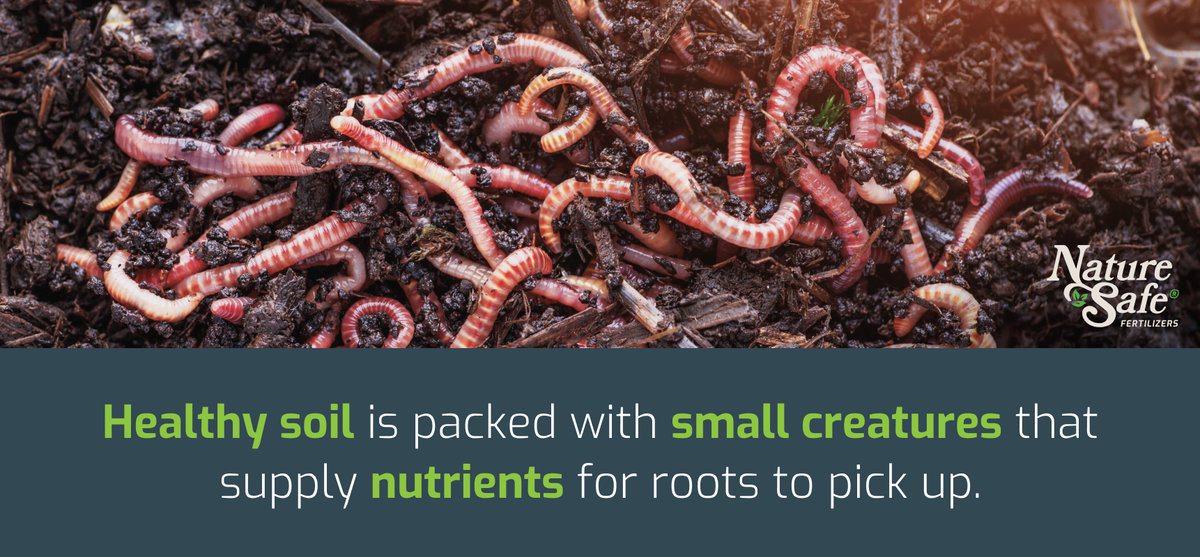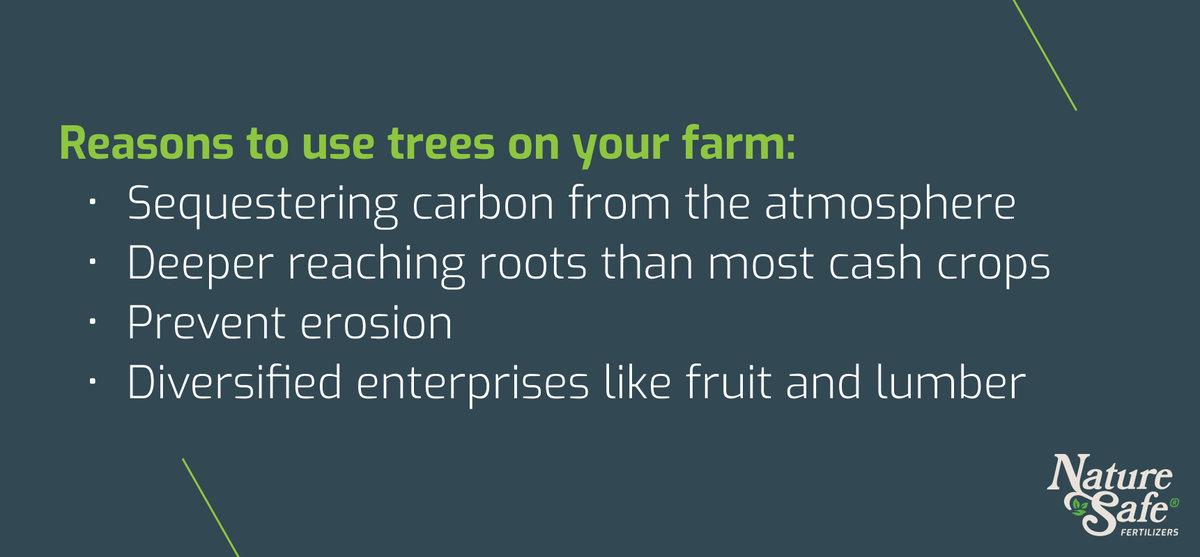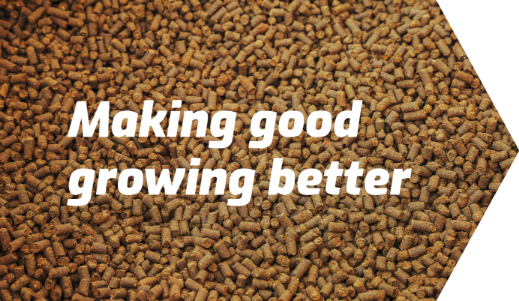
Improving soil health makes for denser growth, and greener, heartier plants. The fitter the soil, the more productive farms can be. It’s worth the investment.
Making several changes, though most effective, can be challenging. However, even making one step towards soil health will make a difference.
What Exactly Does “Soil Health” Mean?
No one should think of soil as just dirt. Healthy soil is a living, breathing ecosystem of bugs, fungus, bacteria and other microorganisms. All plants rely on these life forms to grow.
The health of the soil is often measured in its ability to sustain plant life such as farm crops or turf grass. The ability to retain and filter moisture, hold on to nutrients, and provide food and shelter for anything living below the ground are all hallmarks of fertile soil.
None of this can happen without an abundance of those microorganisms. The measure of soil health really comes down to the amount of life sustained within the soil.
Here are some small (and big) ways to improve soil health:
1. Increase Biodiversity for Soil Health
Healthy soil is packed with small creatures that supply nutrients for roots to pick up. Each family of plants takes in or distributes certain nutrients better than others. Diversifying what goes into each field after a harvest means the organisms in the soil have access to a wider range of nutrients.
You can add biodiversity in a few ways. The first is by simply rotating the crop that you put in each field. Not only does this keep roots in the ground, but the soil will thank you for the benefits each crop will provide.
Using cover crops is also an excellent way to add biodiversity. Cover crops are planted in between major cash crops to mitigate erosion, add nutrients, retain water, and add organic matter into the soil. The symbiotic relationship of organisms in the ground and plants on top works best when biodiversity is high.

2. Reduce Traffic to Keep Soil Healthy
One way soil loses fertility is through compaction. All of the little organisms living in the soil need space to move. The nutrients and water need to be able to flow. Large lawns and golf courses remedy this with aeration and sand top layers.
Agricultural settings cannot necessarily use these methods, but there are other means of combating compaction. If you have livestock, rotate their grazing grounds. If they can’t stay in one place too long, they can’t stomp down the soil too heavily. In addition, grazing livestock helps build organic matter by adding manure to the soil health equation.
Limiting machinery will also help fight soil compaction. Similar to the practice of rotating grazing grounds, the less opportunity there is for something to compact the soil, the healthier that soil will be.
3. Reduce Tillage
Eliminating tillage is a major principle in regenerative agriculture. According to the National Resource Defense Council (NRDC), no-till farming leads to higher yields and healthier soil. Tilling healthy soil can destroy the complex systems that the microbes and bugs created below the surface. Once that ecosystem is destroyed, it has a hard time starting up again.
No-till farming is growing in popularity. Not only does it yield more crops, but farmers can save time and money, as the plant matter left over after a harvest can be used for mulch or livestock grazing.
4. Plant Some Trees
This method of improving soil health may take the most time, however, the benefits to the farmers and the climate are significant.
Agroforestry is “farming with trees.” Yes, trees themselves produce cash crops, but when the farm produces row crops, trees produce benefits for the soil and environment that the crops can’t do on their own.
World Agroforestry has been working with farmers internationally for decades to implement the practice. They help farmers plant trees native to the area.
Planting trees on your farm is a smart idea because they can:
- Prevent erosion
- Sequester carbon from the atmosphere
- Establish deeper-reaching roots than most cash crops
- Allow for diversified enterprises like fruit and lumber

The USDA even has programs currently in place to encourage farmers to plant trees. It lists multiple systems that have different benefits for soil health so that farmers can implement the system that is best for them.
5. Boost Soil Health with Organic Fertilizers
Perhaps the easiest way to make your soil healthier is by using organic fertilizers. Synthetic fertilizers put chemicals in the soil that make the plant grow, but do nothing to help the soil.
Organic fertilizers are made with ingredients that work with the life in your soil for extended periods of time.
Nature Safe offers a 13-0-0 formulation. High in organic nitrogen, this fertilizer features a controlled-release fertility, meaning the product will break down and continually deliver nutrients to the soil over an extended period of time.
Switching to Nature Safe commercial organic fertilizers is the easiest way to improve the health of your soil. Remember however, to take additional soil health-boosting steps whenever possible. Every change you make has an impact.
Whatever your goals for your farm, golf course, or commercial lawn, Nature Safe Fertilizers is here to answer your questions and send you down the right path. Contact us today! Call us at 800-743-7413.
